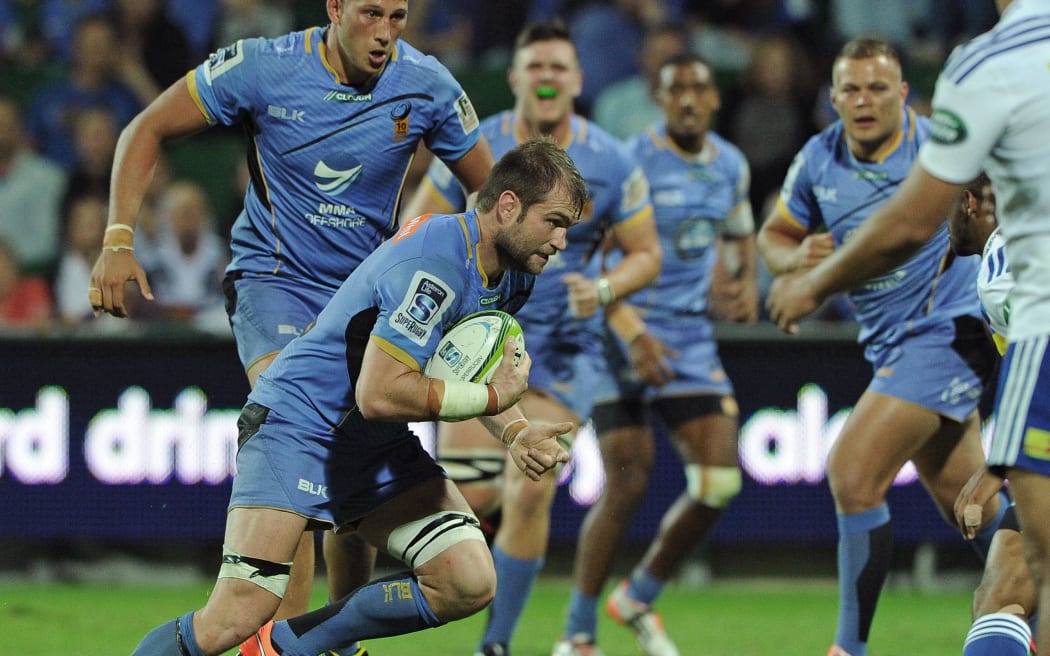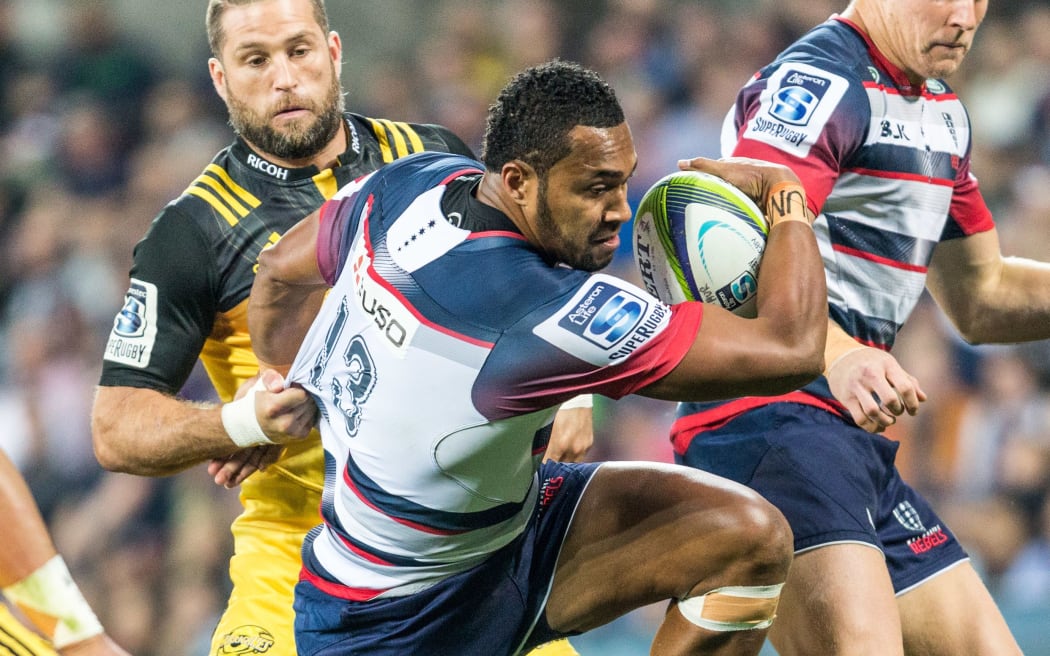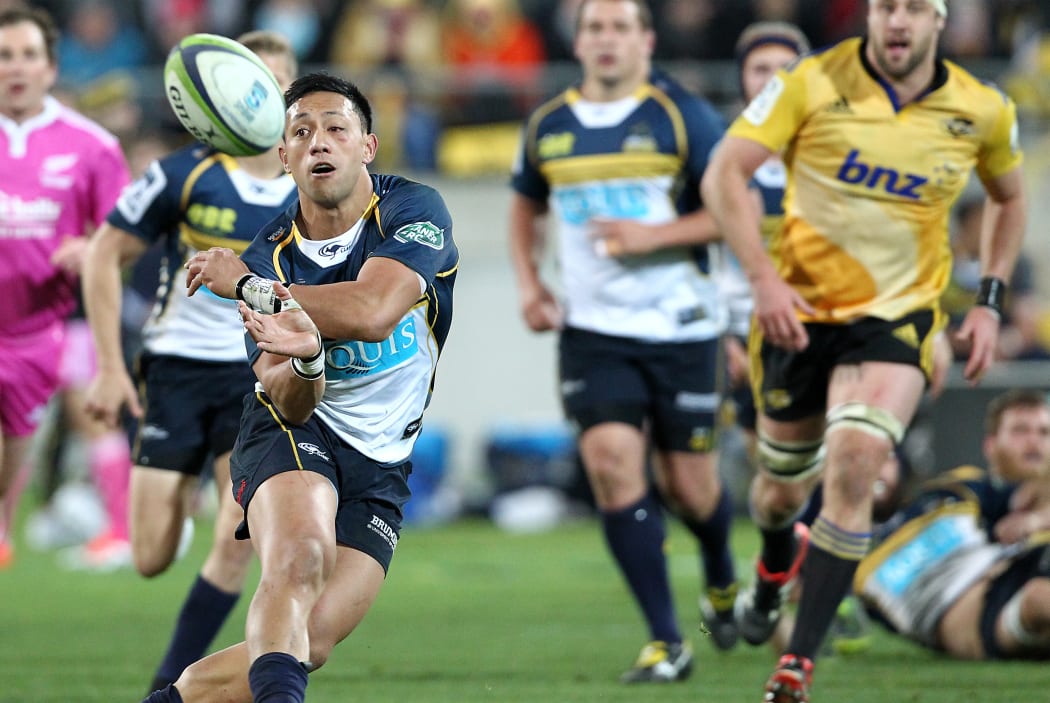Already awash with red ink and battling a talent drain, up to three of Australia's Super Rugby teams will compete this season knowing there is an outside chance it could be their last as organisers mull sweeping changes to the tournament's format.

Photo: AFP
The Australian Rugby Union (ARU) will meet with its New Zealand, South Africa and Argentina counterparts in London in March to try to thrash out a new formula for the sprawling largely southern hemisphere competition.
Expanded to 18 teams last year and split into three conferences with the commencement of a new deal with broadcasters, the tournament broke new ground with the debuts of Japan's Sunwolves and Argentina's Jaguares.
But the highly convoluted format was condemned by former players and pundits for lowering the standard of the competition, and the tournament could be shaken up yet again following a strategic review commissioned by governing body SANZAAR.
"There's a general acknowledgement that the 18-team structure as it is now is not optimal," Greg Peters, a former chief executive of the tournament's governing body SANZAAR, said last week.
"We're hearing that from fans, players and media as well as admitting that ourselves."

Rebels winger Sefa Naivalu. Photo: PHOTOSPORT
The participating unions are expected to discuss proposals to reduce the competition to 16 or even 15 teams at the March meeting, with Australia and South Africa seen as most vulnerable in a cull.
The entry of the Melbourne Rebels to the competition in 2011 was seen as a triumph for Australian rugby, with the country's fifth Super Rugby team grabbing a foothold in the nation's Australian Rules football heartland.
But both the Rebels and the Perth-faced Western Force, who joined in 2006, have proved a heavy financial burden for the ARU, even with increased revenues from the new broadcast deal.
Far from being celebrated as hardy pioneers holding down vital territorial gains, the new franchises have fuelled resentment in Australia's established rugby heartland, the eastern states of New South Wales and Queensland.
"Ring the chief executives of the New South Wales Waratahs and Queensland Reds, they've had their budgets for community rugby slashed dramatically by the ARU," former Wallabies captain Simon Poidevin told Reuters on Tuesday.
"It's gone to prop up the new teams.
"The current financial model in Super Rugby is not stable, it's damaging Australian rugby.
"At the end of the day, Australian Super Rugby sides have underperformed at the last couple of years."
The Canberra-based ACT Brumbies, which won championships in 2001 and 2004, have also been seen as vulnerable in a contraction following a year of board-room strife.
But the club, which has struggled to break even over the past decade, insists it is in better financial health than its Australian rivals.
"We have to prove we are viable financially and we can stand on our own two feet," Brumbies chief executive Phil Thomson told state broadcaster ABC.
"The ARU aren't in a position to bail any more Super Rugby teams out. They've might it quite clear we have to stand on our own two feet."

Christian Lealiifano playing for the ACT Brumbies. Photo: Photosport
The ARU has been reluctant to make its position clear, with chairman Cameron Clyne only revealing on Monday that the union would head into the SANZAAR meeting in March prepared with "multiple options".
Australia's players' union, however, has mobilised its rank and file.
"To cut a team would be not only hampering the competition (for Wallabies spots) and it would be restricting the pathway for juniors to play Super Rugby, too," Wallabies Bernard Foley told Sydney's Daily Telegraph newspaper.
"That is Australia's elite level of rugby and the more players you have playing at the elite level the better."
Although the current season is set in stone, decisions taken at the March meeting could be introduced in time for next year.
With the four rival rugby unions holding disparate and competing agendas in what is effectively a joint venture, and a broadcast deal that runs until 2020, a lack of any decision could ultimately be the outcome.
-Reuters

